Justin Perry thought he was booking directly with his London hotel until he discovered a $155.92 service fee tacked onto his $269 room rate, courtesy of a third-party booking site he never meant to use.
He’s not alone. Despite years of consumer protection efforts, travelers still face surprise charges, poor customer service, and booking nightmares from certain hotel booking websites.
In August 2025, Booking.com paid $9.5 million to settle a lawsuit over hidden fees. Nearly a quarter of travelers 23% report being misled by third party booking sites, representing 28.5 million hotel stays worth $5.2 billion.
The problem is getting worse, not better. More travelers are booking online than ever before, and sketchy booking sites are getting better at their tricks.
You’ll learn about the three types of hotel booking sites that consistently cause problems for travelers. We’ll show you real consumer complaints, Better Business Bureau data, and recent lawsuits that prove these sites cost people serious money.
Why Smart Travelers Never Book Hotels on These 3 Popular Websites
Sites That Hide Behind Hotel Branding and Charge Massive Service Fees
You think you’re booking directly with your hotel. The website shows the hotel’s name. The photos match. The room rate looks good. Then boom you get hit with surprise fees that cost more than your room.
Justin Perry learned this the hard way. He was planning a one-night stay in London and thought he was booking on his hotel’s website. Only after getting his confirmation did he realize he’d used a third-party platform that charged him $155.92 in service fees on top of his $269.16 room rate.
i. The Fake Hotel Website Trick
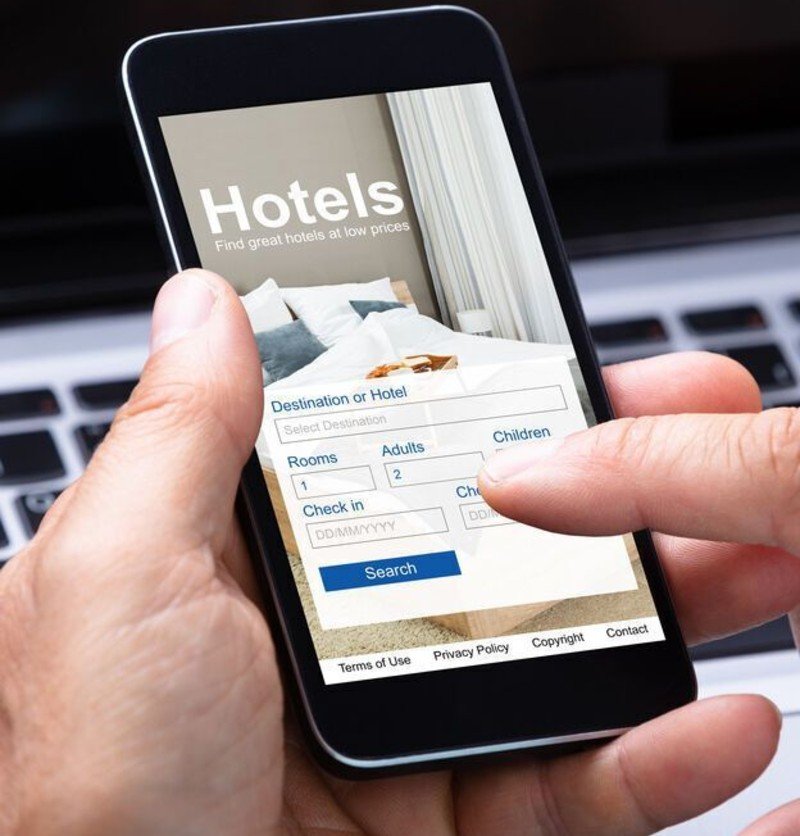
They buy web addresses that look like hotel websites. They use the hotel’s name, photos, and branding. Some even make the hotel logo bigger than it should be to fool you.
Sites like Guest Reservations and GetARoom are masters at this trick. They design pages to look like they might be a hotel website, or they use hotel logos but display them way too big.
The booking process seems normal, but the big, colorful “confirm reservation” button appears above the full amount quoted for your stay. The real total cost appears in tiny text that you only see if you scroll to the bottom of the page.
ii. This Problem Is Huge

Nearly a quarter of travelers 23% reported being misled by third-party resellers. That’s 28.5 million hotel stays worth around $5.2 billion, according to the American Hotel and Lodging Association.
The money involved is staggering. The hotel industry collected a record $2.9 billion in resort fees and other surcharges in 2018 alone. And it’s getting worse as more people travel.
Nearly half of spring breakers now expect to spend at least $1,000 on their travel plans. That’s up from just 34% last year. With people spending more, these fake hotel websites see bigger paydays from their service fees.
iii. Even the Big Names Get Caught
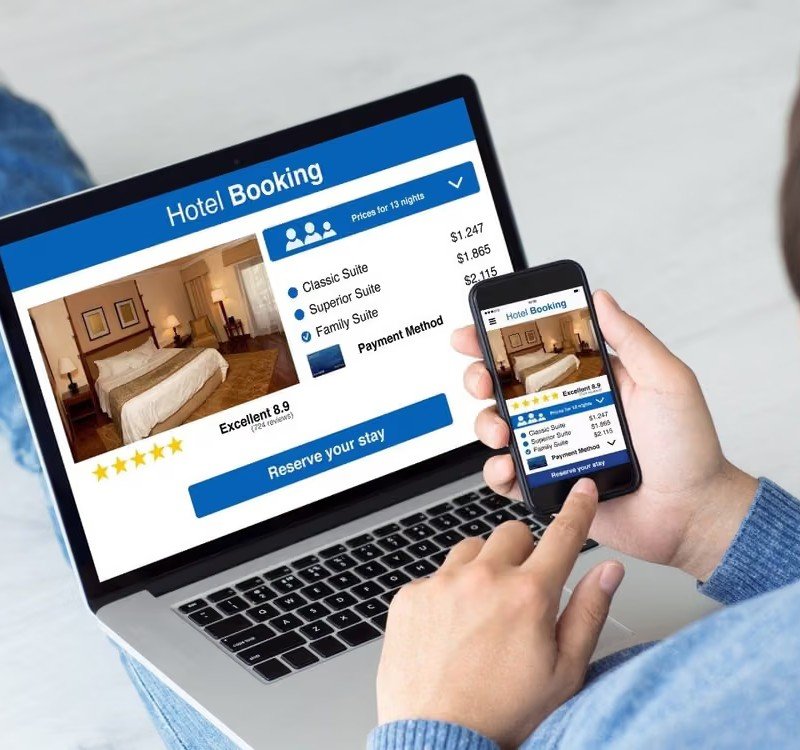
You might think major booking sites are safe. Think again. In August 2025, Booking.com agreed to pay $9.5 million to settle a lawsuit with Texas over hidden hotel fees. The state accused the company of luring customers with low prices while hiding mandatory “junk” fees like resort and amenity charges.
This was the largest case of its kind in the United States. And Booking.com isn’t some small sketchy site it’s one of the biggest names in travel.
iv. Red Flags to Watch For
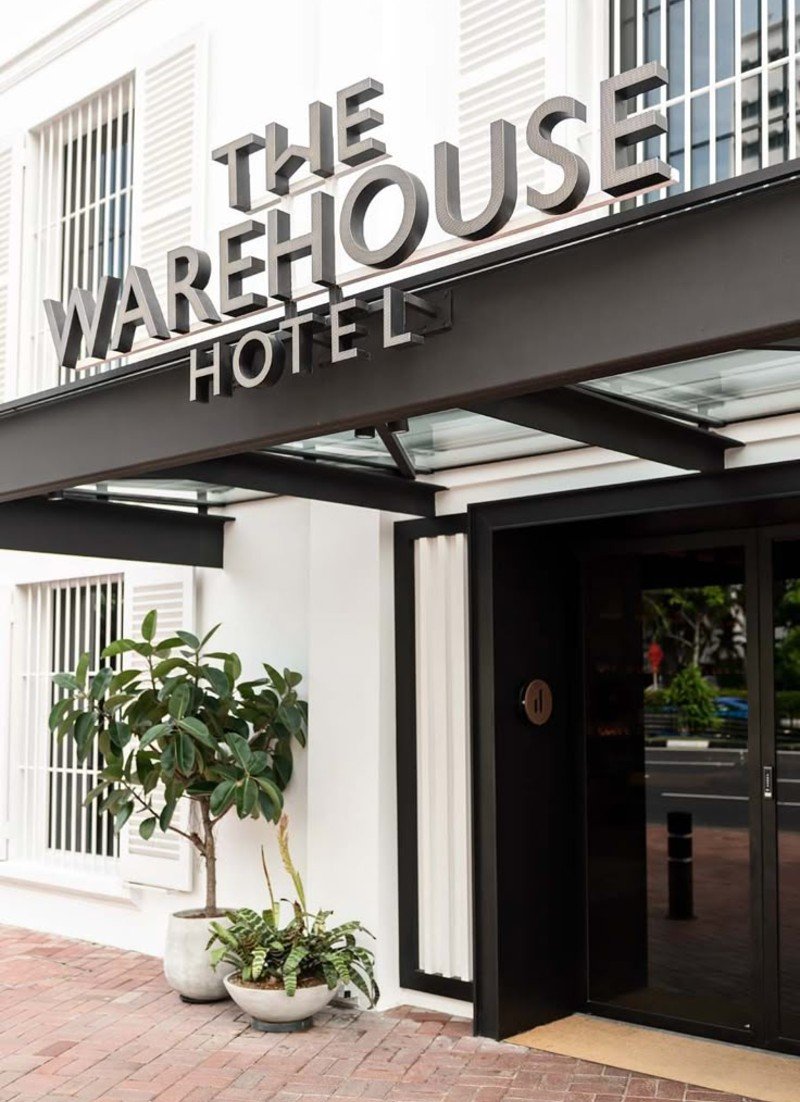
Check the URL carefully. If you’re trying to book a Marriott hotel, the web address should be marriott.com or something similar. Watch out for URLs like “marriott-hotels-booking.com” or “book-marriott.net.”
Look for oversized hotel logos. Real hotel websites use their logos normally. Fake sites often make logos huge to trick you into thinking you’re on the official site.
Watch the pricing flow. Legitimate hotel websites show you taxes and fees upfront. Deceptive sites hide the real total until the very end or sometimes after you’ve already booked.
Read the fine print. Those tiny links at the bottom of the page often reveal the real company name. You might think you’re on Hilton’s site, but the fine print says “powered by BookingScam.com.”
Trust your gut. If the booking process feels weird or rushed, stop. If you can’t find clear contact information, leave. If the “confirm” button seems too eager, be suspicious.
v. The Bottom Line

These fake hotel websites cost travelers millions every year. They bank on you being in a hurry or not paying attention to details. Some travelers report service fees that cost more than the room itself.
The solution is simple but requires discipline. When you find a hotel rate you like on any booking site, go directly to the hotel’s official website. Most hotels will match the rate, and you’ll avoid surprise fees completely.
Don’t let a fake hotel website turn your dream trip into a financial nightmare. Take the extra 30 seconds to verify you’re booking with the right company. Your wallet will thank you.
Booking Sites with Automatic Memberships and Impossible Customer Service
Super.com is a master at this trick. When you book a hotel through their site, they automatically enroll you in their “Super+ club” for $15 per month. The worst part? They don’t clearly tell you this is happening during checkout.
One frustrated customer wrote to the Better Business Bureau: “I found out by noticing a charge on my credit card statement. In the company terms, there are statements about membership benefits, but nowhere does it state that automatic enrollment happens when you make a booking.”
i. When Things Go Wrong, Good Luck Getting Help

Bad customer service can ruin your entire trip. Just ask the customers who rated MyTrip 1.47 out of 5 stars based on 137 reviews. That’s almost as low as you can go.
One family arrived at the airport for their flight, only to discover that the airline was no longer flying out of that location. They had to wait nearly 4 hours at the airport at 5:45 AM with two kids, then drive 8 hours home instead.
The customer said: “Due to their mistake, my whole family were waiting for close to 4 hours at airport. We were not allowed to check in and board the flight and at last due to my 4 year kid started getting cranky need to get back home.”
ii. The Hang-Up Game

Customer service gets even worse when you actually need help. One Booking.com customer described calling for help only to have representatives hang up on them twice. The first person “almost yelled” at them and deflected blame. When they asked to speak to someone else, that person hung up too.
The customer said: “I dialed a different number, and was once again met with a dead end. They refuse to acknowledge that there was a failure on their side. It’s as if they are all trained to act like people with severe personality disorders.”
iii. Why Customer Service is So Bad

Most third-party sites outsource their customer service departments. This creates a big problem for hotel brands just by association.
Think about this situation. You book a Hilton hotel through a third-party site. When you call for help, you get a rude customer service rep who works for the booking site, not Hilton. But you’ll probably blame Hilton for the bad experience, even though they had nothing to do with it.
iv. You Get Bounced Around Like a Ping-Pong Ball
When your flight gets cancelled or your hotel reservation goes missing, you need help fast. But third-party booking sites create a blame game. Airlines may direct you back to the third-party platform for changes, which means slower fixes and more stress when you need help most.
Travel expert Sally Dengler explains: “Your reservation is with them and not the airline or hotel. That means you contact them for customer service instead of the airline or hotel.”
v. The Real Cost of Bad Service
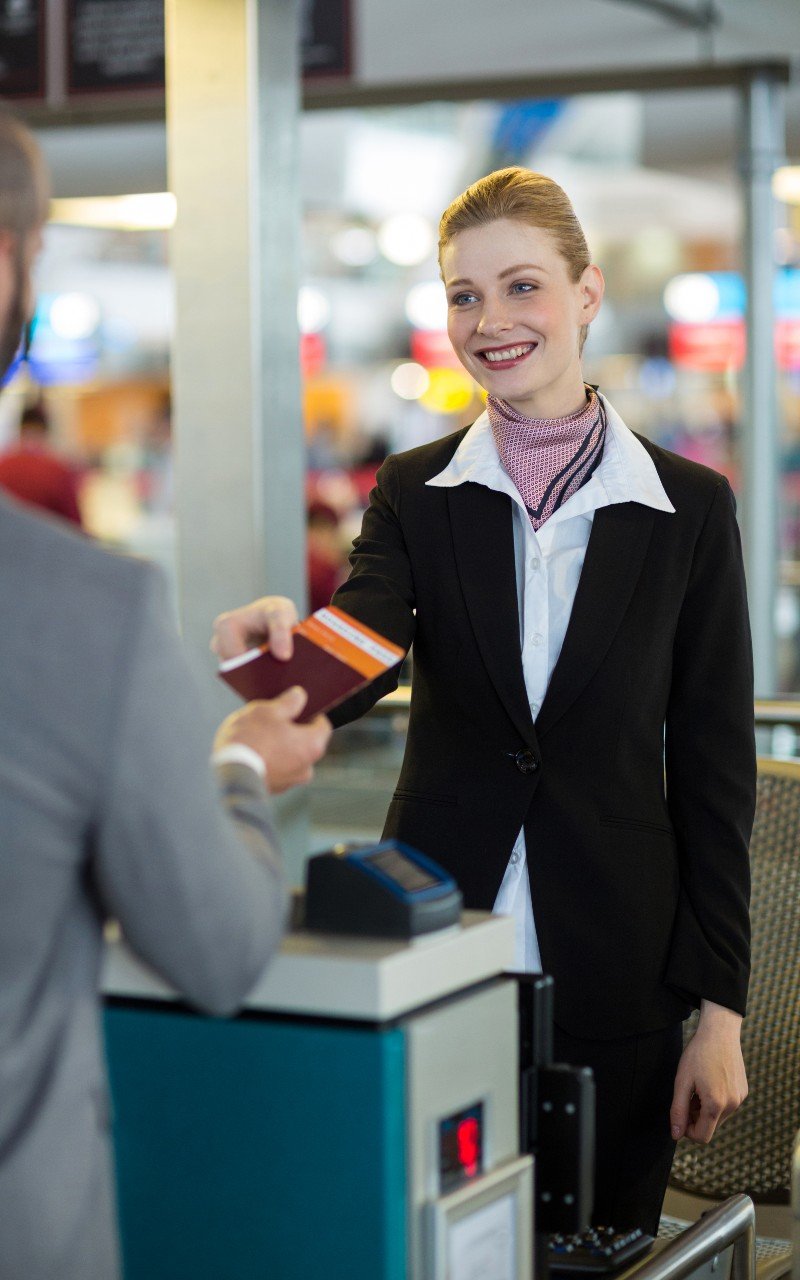
Poor customer service costs you more than just time and frustration. Third-party booking sites often have stricter cancellation policies than airlines. You may face extra fees or more rigid change policies.
Even worse, third-party sites don’t have to follow the Department of Transportation’s 24-hour cancellation rule. That rule lets you cancel flights within 24 hours for a full refund but only if you book directly with the airline.
Sites That Sell Fake Availability and Use Bait-and-Switch Tactics
You find the perfect hotel room at an amazing price. You start booking. Then at checkout, the price jumps by hundreds of dollars. Sound familiar? Welcome to the bait-and-switch world of sketchy booking sites.
Some third-party booking sites add up to 40% in service fees during checkout. They show you a low price to get you hooked, then hit you with “booking fees,” “processing charges,” and other made-up costs right before you pay.
i. The Vanishing Room Trick

Here’s another classic scam. You search for hotels and see a great rate that’s way below everyone else. You click to book it. Suddenly, that rate is “no longer available” and you’re stuck with the same prices as other sites.
Travel experts call this bait-and-switch tactic “garbage.” It’s like a restaurant saying “Sorry, you just missed the last $27 ribeye. Now it’s $34.” No legitimate business should work this way.
ii. The Double-Booking Disaster

Sometimes the scam gets even worse. Some sites create duplicate bookings when payment processing “fails.” You think your card was declined, so you try again. But both charges go through, and now you’re paying for two rooms you don’t need.
iii. Even Big Sites Play Games

You might think major travel sites are above these tricks. Think again. Trivago, owned by Expedia, claimed there were “no rooms available” at a Paris hotel during testing. When researchers ran the same search again, rooms magically appeared with good prices.
iv. The Fake Availability Problem

Some sites show hotels as “sold out” when other platforms have rooms available. This creates fake scarcity to pressure you into booking through their higher-priced partners.
Travel site aggregators sometimes display results from booking services with “amazingly low prices but sketchy track records for customer service.” If you’ve never heard of the booking company, that’s a red flag.
v. No Protection When Things Go Wrong

When you book flights through third-party sites, you lose protection under the 24-hour airline cancellation rule. Airlines don’t have to honor that rule for third-party bookings.
This means if you need to cancel within 24 hours, you could be stuck paying fees that direct airline customers don’t face.
vi. How to Spot Bait-and-Switch Sites
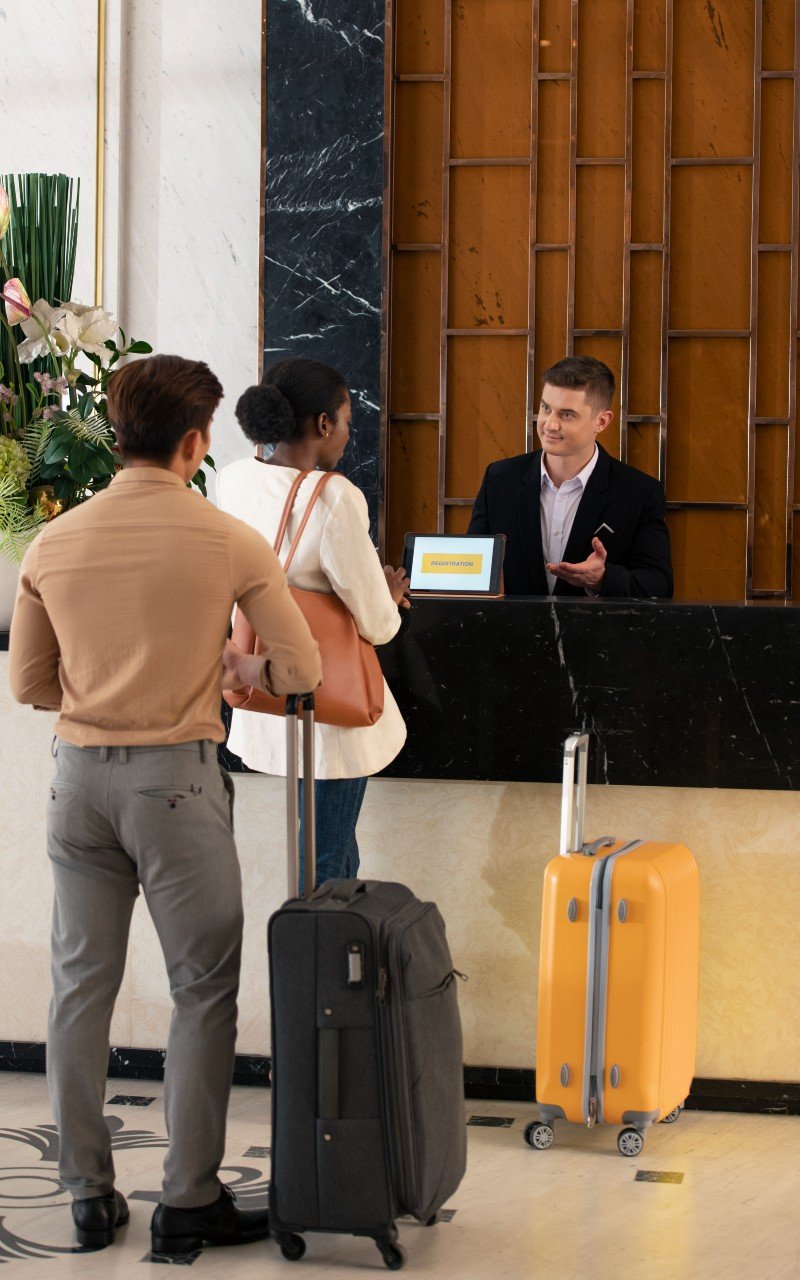
Prices that seem too good to be true. If one site shows rooms for $50 when everyone else shows $150, be suspicious.
Vague booking companies. If a hotel booking website tries to send you to a company you’ve never heard of, do a quick search for reviews or scams before giving them money.
Pressure tactics. Sites that say “Only 1 room left!” or “Price expires in 10 minutes” are trying to rush your decision.
Hidden fees at checkout. Always check the final total before confirming. Take screenshots if the price seems to change.
What Smart Travelers Do Instead
Now you know which booking sites to avoid. But how do you actually find good hotel deals without getting scammed? Smart travelers have a simple system that saves money and avoids headaches.
i. Use Booking Sites as Research Tools Only

Use sites like Kayak, Google Hotels, or even Booking.com to find hotels and compare prices. But don’t book there. These sites are great for research but terrible when things go wrong.
Once you find a hotel you like, open a new tab and go directly to the hotel’s official website. Type the hotel name plus “.com” in your browser. Don’t click on ads or sponsored results.
ii. Hotels Will Match Good Rates

Most hotels will match legitimate third-party rates when you call or book direct. This gives you the same price plus better customer service, loyalty points, and room upgrades. When you book directly, hotels can create personalized communications and offer special deals that third-party sites can’t provide.
Call the hotel directly if their website shows a higher rate. Say “I found your hotel on [booking site] for $X per night. Can you match that rate?” Most will say yes.
iii. Use Credit Cards for Protection

Always book hotels with a credit card, never a debit card. Credit cards offer dispute resolution services that can help you recover money if something goes wrong. If you get charged a surprise fee, contact your credit card company to stop or dispute the charge.
iv. The 30-Second Rule

Before clicking “confirm booking” on any site, take 30 seconds to double-check:
i. Is the total price what you expected?
ii. Are you on the real hotel website?
iii. Do you understand the cancellation policy?
iv. Did you save screenshots of the original price?
This simple habit prevents most booking disasters. Your future self will thank you when your hotel reservation goes smoothly instead of turning into a customer service nightmare.
FAQs
Which booking sites should I completely avoid?
Avoid sites that disguise themselves as hotel websites but aren’t official hotel sites. Guest Reservations, GetARoom, and Super.com are examples of sites with major consumer complaints.
Are big names like Booking.com and Expedia safe to use?
They’re safer than unknown sites, but they still have problems. Booking.com paid $9.5 million to settle a lawsuit with Texas over hidden hotel fees in August 2025. Expedia and Booking.com process thousands of bookings daily and have clout with hotel chains, making them more reliable than smaller sites.
How can I tell if a hotel booking site is fake?
Check the web address carefully. Real hotel sites use URLs like “marriott.com” or “hilton.com.” Fake sites use addresses like “marriott-hotels-booking.com” or “book-hilton.net.” Also watch for oversized hotel logos and pricing that seems hidden or unclear.
What should I do if I’ve already been charged surprise fees?
A: Call the booking site’s customer service first. If you can’t get help, contact your credit card company to dispute the charge. You can also file a complaint with the Better Business Bureau. Take screenshots of everything the original advertised price, your booking confirmation, and your credit card charges.

